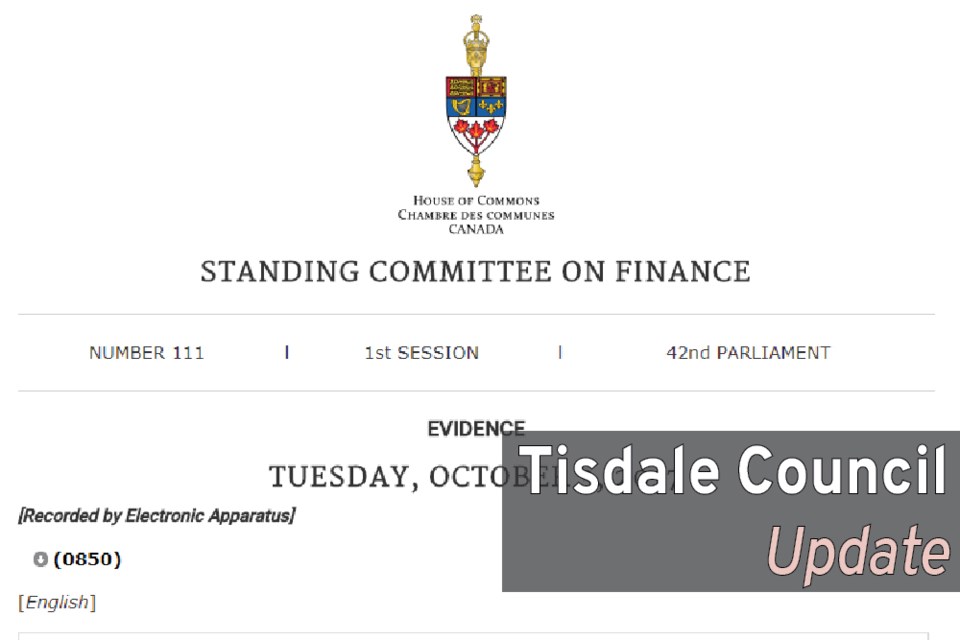A familiar name to Tisdale residents spoke to a group of federal MLAs asking for suggestions to improve competitiveness and productivity of Canadian businesses.
Sean Wallace, Tisdale’s economic development officer, spoke on behalf of the Saskatchewan Economic Development Association to the House of Commons’ finance committee Oct. 3 in Saskatoon. He said he’s quite involved in the provincial economic development agency and was asked to speak by them due to his experience.
“I’ve got a fairly comprehensive government relations background and I’ve worked in those circles.”
The economic development officer acknowledged in his speech that rural areas all face mitigation of population to the cities, have aging and inadequate infrastructure, lack of transportation access, more difficulty accessing health and education, and less opportunities for youth.
“Unfortunately, when developing strategies and policies around productiveness and competitiveness, a single national strategy would be largely ineffective because they tend to be generic and focus on large population centres,” he told the committee. “What works in cities doesn’t necessarily work in rural communities.”
Instead, the federal government should provide funding for innovation, encouraging careers in agriculture through education and training and preserving tax incentives for farm operations and the rural businesses that support the agricultural industry will help grow and maintain rural economies.
Wallace also spoke against the federal government’s proposed tax changes, saying it would reduce the amount of money people have to invest in the local economy and making it harder to pass farms to the next generation.
“I think they understand that agriculture’s going to be disproportionally impacted, but what I don’t think they get is that communities that rely on agriculture and the companies that support that industry in towns like Tisdale, they don’t realize there’s a downstream effect,” Wallace told the Recorder after. “It’s great helping the farmers out, but what about the businesses that support the farming industry?”




